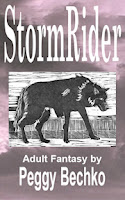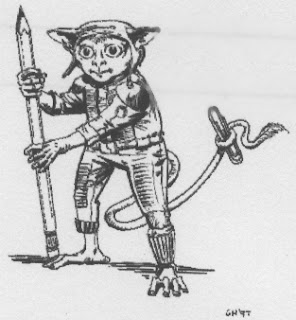Break out the champagne, start the celebration, whoo-hoo, you've sold a book, your first novel! Wow, well-done. Now you think you’re going to quit your day job and live on the advance and launch into literary stardom. Well, maybe, but don’t count on it just yet. Much as we'd all like to think of that as the writer's reality, it just isn't and forewarned is forearmed, right? Hmm, well, maybe a bit of a downer, reality can bite, but if you want your eyes open read on. If you'd rather be surprised, than stick your head in the sand and stop here.
Okay, you're still with me. So, your book is being published by a large New York publishing house. This means you get a lot of money, right? Ah, probably not. Advances are small, when they happen at all, unless you're a big name in which case you wouldn't be reading this. Writers with several books in print can usually support themselves with a lot of planning, but frankly even they are rare. Only the really big names get away with that stuff.
For starters, for all fiction, in all genres (and we’re talking large and small publishing houses here), the average advance for a new author with a first book is about $5,000. And that, remember, is average, many get less than that for statistics to reach that average.
But that looks pretty good for a first one out of the gate. However out of that you may well have an agent to pay and if so that is a 15% commission right off the top. Then, the way things are these days, you’ll need a website. If you’re technically inclined you can save some serious bucks, but if you’re not it could cost you about $500 - $1,000 (or a whole lot more) to get that website created and put up. And to this point we haven’t spoken about the cost of self-promotion (yes you have to promote yourself), possibly attending a conference of one kind or another or other promotional items.
At this point you don’t have a lot left over – oh, and be sure to save receipts and track expenses closely because I won’t even touch the subject of taxes for the self-employed. Just let's say as a guesstimate you need to allow around 35% or so off the gross because yes you have to pay income tax and you also get to pay more on your social security as you are your own employer - you might think about incorporation at some point, but I'm not you financial advisor.
But, you say, after the book finally is published, then you’ll see some serious bucks, right?
Maybe. Hope so, but again, don't count on it. Remember the publisher pays itself back the “advance” you received before you see any more cash. So, if you’ve sold your book to a house that puts it out in paperback format and sells it for $7.99 which seems to be a very common price point these days with an 8% royalty rate (also common in contracts), they you’d get about $0.64 per book. To pay back that advance you received you need to sell over 7,800 books before you earn more cash from your new baby.
Okay, before you panic, most print runs from large New York houses are at least 10,000 copies (last time I checked - and these things change) so plainly they’re expecting to sell that many, which is more than the base needed to pay back the advance and then some. If that’s the case you’d earn about another $1,400 minimum and hopefully more. We won't discuss 'remainders' here. That's mostly for hardcover and newbies don't usually start out with hardcover - though it can happen, in fact did happen for me (for better or worse).
But here’s something else to consider. Publishers pay author royalties twice a year. Usually for the periods of January through June, then July through December – and they don’t cut that check until about three months AFTER the cut off of the pay period. So plan ahead for some waiting for any additional monies.
Now, is this depressing? Well, yes, a little. But if you keep things in perspective and plan ahead you can build a nice career. And you can write in other areas as well to keep those writing checks coming in. spread your wings. Explore other venues. Write articles, reports, shorts for the magazines that have such. In general look into any other writing that appeals to you to help supplement.
And remember there are many variables. The rare first time author is very fortunate to receive a large advance. It can happen. There are multibook deals, maybe you’ll get one of those. A series can be a profitable avenue (look at Harry Potter or Orson Scott Card's 'Ender' series). Then there are other possibilities out there like sale of movie rights or audio rights, or foreign reprints. And, down the road, as you build your ‘library’, don’t forget to look into reversion rights after a book goes out of print so you have the possibility of placing it again.
So keep writing and producing those books. Oh, and don’t forget to keep up with publishing trends so you can work contracts to your best advantage and avoid the idea that writers always have to be broke. Forewarned is forarmed (had to toss in the cliché yet again - sorry).



























